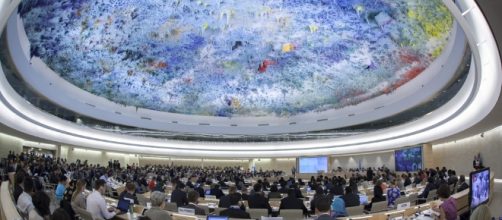Six months after the victory of Donald Trump in the US presidential election, representatives of 196 countries in Bonn are discussing the implementation of the Paris Climate Agreement. "This international treaty is the ultimate hope of small island states to survive," said Thoric Ibrahim, Environment Minister of Maldives, in a statement on the eve of the Bonn meeting.
What are Trump's plans?
His statement testifies to the great concern of the most sensitive climate change countries, which was amplified by the arrival of Donald Trump and his announcement that they would not fight the global warming.
But Thoric Ibrahim nevertheless emphasized that political mobilization continued, although Trump was elected at the time of the last UN climate conference in Marrakech. "After the COP22 in November, 44 countries have ratified the treaty", so the number of countries that completed the process has climbed to 144, which is 83 percent of the world's emissions, he said. The European Union together with 196 other countries are members of the UN Climate Convention after Palestine joined in late 2015.
Russia has not ratified the agreement
Among the major greenhouse gas discharges, only Russia (the fifth polluter after China, the US, the EU, and India) has not ratified a document. Russia is unlikely to do so at the time of the presidential mandate of Vladimir Putin, who stated at the end of March that climate change can not "be prevented" because of the "general cycles on Earth".
And while the US and Russian governments are giving up on climate change, China and India have confirmed that they will accept their obligations, which will also enable them to fight air pollution and reduce fuel consumption.
The countries gathered in Bonn have ten days to prepare a "manual" with the Paris Accord, which has come into force lawfully, but its general provisions have to be accurately determined by the end of 2018.
In November 2017, Fiji will chair COP23, which will be held for logistical reasons in Bonn, the headquarters of the Climate Convention.
The agreement wants to limit global warming
The Paris Climate Agreement, which by the end of 2015 after years of heavy negotiations has been signed by more than 190 countries, including the United States, wants to limit global warming to less than 2 degrees Celsius, referring to the period from 2020 onward.
By 2030, according to the UN's environmental program, annual greenhouse gas emissions will be 12 to 14 billion tons of carbon dioxide more than the planned 42 billion tons. In 2014, they amounted to 52.7 billion tons. The agreement from all countries requires them to set up plans that will allow the temperature increase to be limited to less than 2 degrees Celsius compared to the pre-industrial period.


